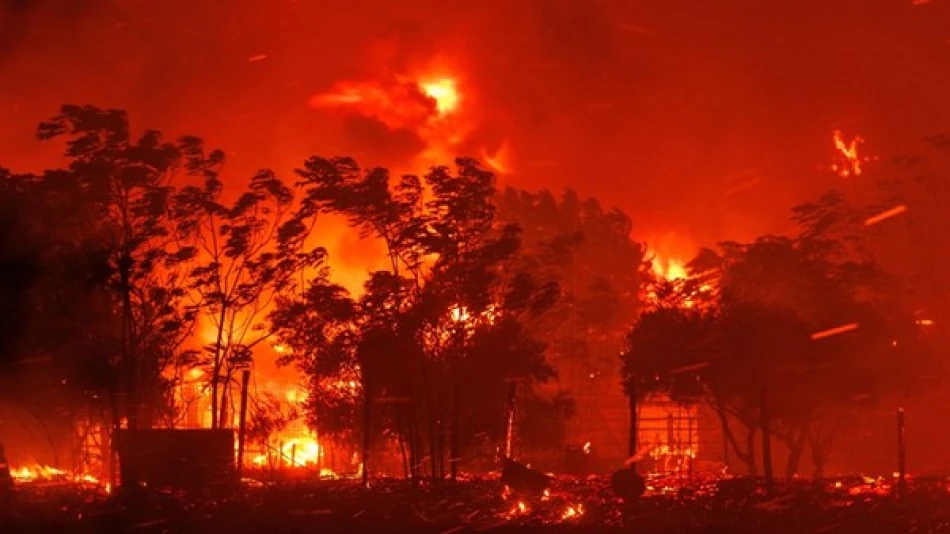
Greece Battles Raging Wildfires, Prompting Urgent Evacuations
Greece Battles Wildfire Crisis as Climate Change Turns Mediterranean Into Fire Hotspot
Greece contained a major wildfire near Athens on Saturday morning, but the threat is far from over. As authorities continue evacuating high-risk areas ahead of predicted strong winds early next week, the blazes have already claimed at least one life and destroyed homes and farmland, highlighting how climate change is transforming the Mediterranean into what scientists call a "wildfire hotspot."
Deadly Fires Threaten Historic Sites and Communities
Fierce winds fueled multiple wildfires on Friday, spreading flames from areas near the Greek capital to regions surrounding the ancient city of Olympia. The most severe blaze erupted in the small town of Keratea, southwest of Athens, where firefighters discovered the body of an elderly man in a burned building.
While fire service officials reported Saturday that the Keratea fire is now under control, it has not been fully extinguished. The continued threat has prompted ongoing evacuations as meteorologists warn of strong winds expected to hit the region in the coming days.
The Mediterranean's Growing Fire Crisis
Greece's latest wildfire emergency reflects a broader pattern affecting the entire Mediterranean basin. Scientists have designated this region as a "wildfire hotspot," where blazes regularly ravage landscapes during the hot, dry summer months.
Climate Change Amplifies Fire Risk
The Mediterranean climate is becoming increasingly conducive to wildfires due to rising temperatures and changing precipitation patterns. Extended dry periods, combined with periodic strong winds like those currently threatening Greece, create perfect conditions for fires to ignite and spread rapidly.
This trend mirrors similar challenges faced across Southern Europe, from Spain and Portugal to Italy and Turkey, all of which have experienced devastating fire seasons in recent years. The 2021 fire season was particularly brutal, with Greece alone losing over 100,000 hectares of forest and agricultural land.
Economic and Environmental Impact
Beyond the immediate human cost, these recurring wildfires pose significant economic challenges for Greece. The destruction of agricultural land threatens local food production, while damage to infrastructure and homes requires costly rebuilding efforts. The tourism industry, crucial to Greece's economy, also suffers when fires threaten popular destinations and create hazardous air quality conditions.
Adaptation Strategies Under Pressure
Greek authorities have invested heavily in firefighting capabilities and early warning systems following previous catastrophic fire seasons. However, the frequency and intensity of wildfires continue to test these defenses. The current situation demonstrates how even improved preparedness struggles against the mounting challenges posed by climate change.
As Greece battles its latest fire emergency, the incident serves as another stark reminder of how Mediterranean countries must rapidly adapt their fire management strategies to cope with an increasingly volatile climate reality.
Most Viewed News

 Layla Al Mansoori
Layla Al Mansoori






